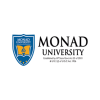

Maters of Business Administration (MBA)
A postgraduate degree program called the Masters of Business Administration (MBA) aims to give students a solid foundation in business management and administration. It addresses several business-related topics, such as operations management, marketing, finance, human resources, and strategic planning. Generally speaking, MBA programs are designed to give students the information and abilities they need to pursue jobs in a variety of business-related fields or to pursue graduate-level studies.
University
50+
Duration
2 Years
Eligibility
Graduation
Masters of Business Administration
MBA, or Master of Business Administration, is a distinguished postgraduate degree that provides students with the knowledge, skills, and tools they need to succeed in the dynamic world of business and management. An MBA programme typically lasts two years and provides a thorough curriculum covering numerous facets of business, such as finance, marketing, operations, strategy, and leadership. Students investigate real-world case studies, participate in group projects, and frequently do internships to obtain practical experience. MBA programmes also provide specialisation options, allowing students to adapt their education to their desired professional path, whether in finance, marketing, entrepreneurship, or another sector. The degree provides access to a wide range of job prospects across industries and sectors, from global organisations to start-ups.
Core Business Courses:
- Principles of Management: Introduction to fundamental management concepts and theories.
- Marketing Management: Study of marketing strategies, consumer behavior, and market research.
- Financial Accounting: Principles and practices of financial accounting, including balance sheets, income statements, and cash flow statements.
- Managerial Accounting: Application of accounting concepts for decision-making within organizations.
- Business Ethics: Exploration of ethical dilemmas in business and corporate social responsibility.
- Organizational Behavior: Examination of individual and group behavior within organizations.
- Business Law: Introduction to legal principles relevant to business transactions and operations.
- Operations Management: Study of production processes, supply chain management, and quality control.
- Strategic Management: Analysis of strategic decision-making and long-term planning in business.
Areas of Specialization
Graduates of BBA programs are well-equipped to pursue careers in a wide range of industries and functional areas, including:
- Business management and administration
- Marketing and advertising
- Finance and banking
- Human resources management
- Consulting
- Entrepreneurship and small business management
- Operations management
- Supply chain management
- International business
Why Choose MBA Program?
Versatility: MBA programs provide a thorough education in a range of business topics, such as operations, marketing, finance, management, and human resources. Because of their adaptability, students can study several business specialties and acquire a broad range of skills that are useful in a variety of fields and businesses.
Career Opportunities: There are many different career options in business-related professions for those with a MBA degree. Graduates can work in operations, human resources, consulting, marketing, finance, management, entrepreneurship, and more. Graduates of the program are prepared to transition into a variety of professions and industries thanks to the broad skill set they gain.
Practical Skills: Internships, case studies, projects, and simulations are just a few of the real-world learning opportunities that MBA programs frequently include. Through these practical experiences, students can apply their academic knowledge to real-world business problems, gaining useful skills.
Admission Requirements:
- Bachelor’s Degree: A completed undergraduate degree from a recognised institution is typically necessary.
- Job Experience: While not necessarily required, many MBA programmes prefer students with relevant job experience, which typically ranges between 2 and 5 years.
- Standardised Tests: Some programmes need standardised test scores, such as the GMAT (Graduate Management Admission Test) or GRE.
- English Proficiency: Non-native English speakers’ proficiency in English is frequently verified by examinations like TOEFL (Test of English as a Foreign Language) or IELTS (International English Language Testing System).










Right Location, Affordable Fees And Right Education!

